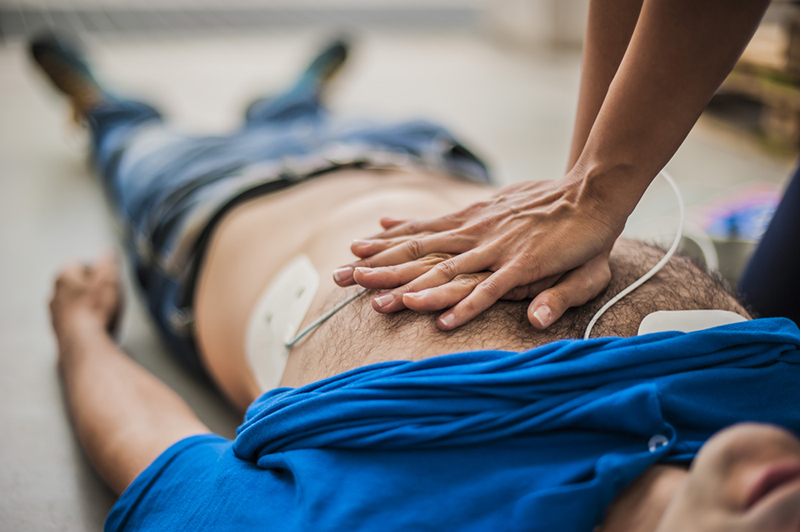First aid in the workplace is essential. There are various laws designed to keep us safe at work and employers are required to provide some equipment and training to help us all be prepared if someone ever needs urgent medical assistance. But there is one machine that could help us be better prepared for the event of a cardiac arrest and some are pushing for it to become mandatory.
Automated External Defibrillators (AEDs) are the real-life version of those things we see in the movies. You know the scenes where someone is flatlining and the doctor yells “clear” and places two paddles to the unconscious person’s chest to jolt them back to life? Yep, those things.
It might all seem like entertainment but the realities of how much an AED could save us are very real and very serious.
“If an AED is applied to a sudden cardiac arrest patient within the first minute of collapse, their chance of survival is 90 per cent,” according to Australia Wide First Aid.
“For every minute that passes, their chance of survival drops 10 per cent.”
That’s significant when you consider for 90 per cent of code one situations in Australia the ambulance response time ranges from 12.9 to 19.8 minutes.
Doctor Paul Middleton from the Australian Resuscitation Council penned a piece for the Sydney Morning Herald in 2013, noting in the American city of Seattle “48 per cent of out-of-hospital cardiac arrest victims survive” and attributing that to government efforts to increase the availability and use of AEDs.
There is a network of publicly accessible AEDs in Queensland – at shopping centres, schools, community centres – but it’s currently not a requirement of Australian workplace health and safety legislation for employers to provide AEDs. Various groups are campaigning for that to change.
Remember: if someone is going into cardiac arrest call triple-0. An operator can talk you through resuscitation techniques such as CPR and using an AED if one is present. They will usually be accompanied by a green and white sign.
Recently, some of the House Call Doctor team underwent training in operating an AED and a machine was installed at our base in Brisbane.
Our team took a course with Australia Wide First Aid and trainer Graham Howell said he would like to see AEDs rolled out across the country.
“I believe all businesses, big or small, should have an AED onsite because heart attacks can occur to any person, anytime, anywhere,” he said.
“Certainly, businesses with a large number of staff, those involved in aged care, and those that are deemed dangerous occupations should have an AED onsite.
“I like to think of AED’s in the same light as fire extinguishers. Consider that fire extinguishers are a mandatory requirement for all businesses but AEDs are not.
“Both are items one hopes they never have to use, but will be grateful they have one, if they do!”
If you would like more information for yourself or your workplace contact Australia Wide First Aid.





